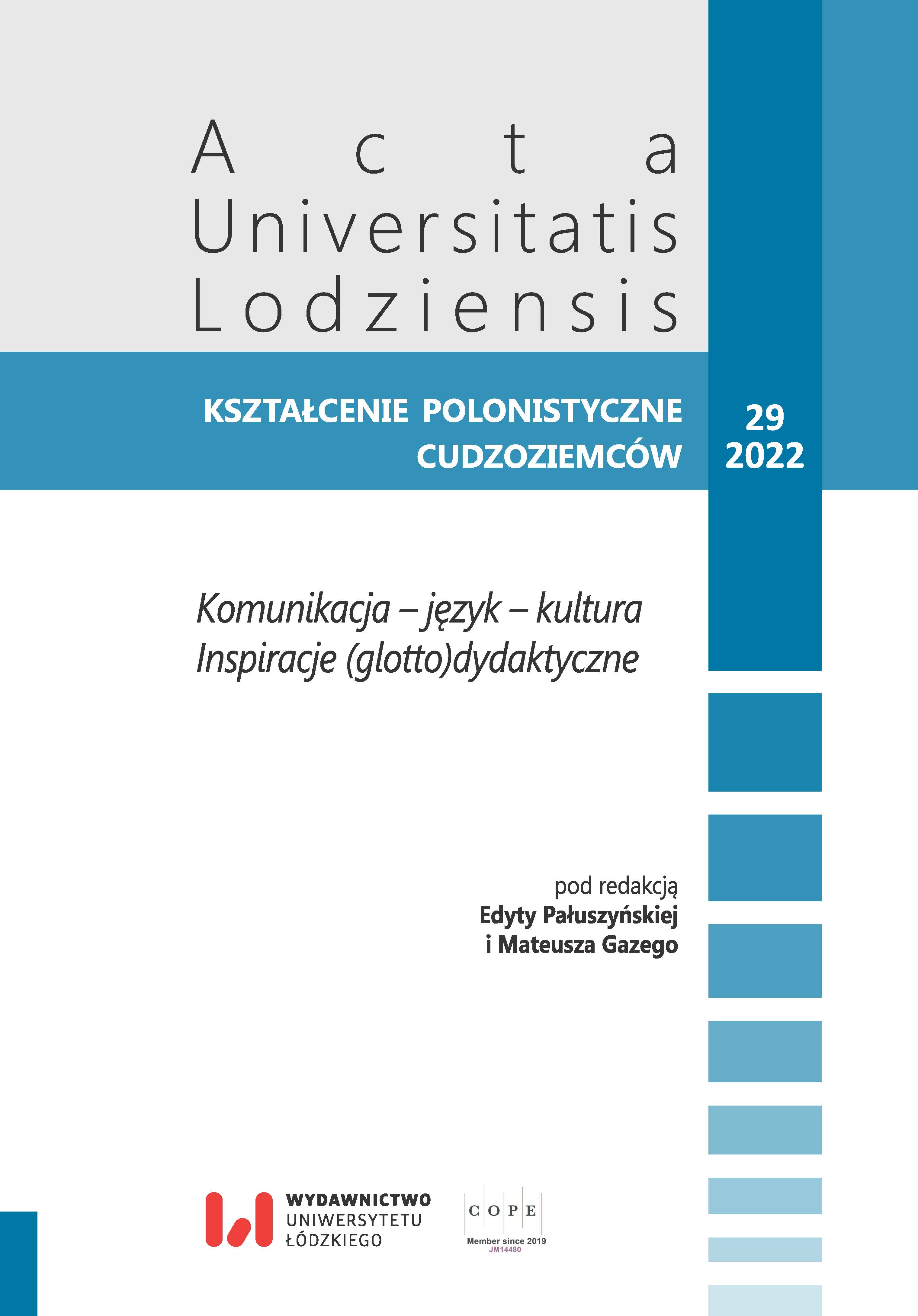Comparative Study of Language Proficiency Tests in their Listening Comprehension Part (Level B1)
DOI:
https://doi.org/10.18778/0860-6587.29.17Keywords:
Polish as a foreign language, listening comprehension, competence testsAbstract
The subject matter of the description and analyses in this article is the testing of listening comprehension proficiency as a part of standardized proficiency tests whose function is to determine and evaluate the language skills of an examinee with respect to a specific level. The primary reference point is the correctness criteria, especially construct validity, which is nowadays defined as compliance with the updated descriptor scales specified in the augmented version of the Common European Framework of Reference for Languages: Companion Volume with New Descriptors (CEFR_CV 2020). The analysis focuses on tests at the threshold level – B1. The testing methods, the texts used, as well as the structure of the examinations devised to assess the comprehension of spoken Polish are compared with certificate tests used in the teaching of English, German, and Spanish as foreign languages. Such reference to achievements in the testing of proficiency of languages of global reach makes it possible to formulate conclusions on prospects and opportunities for improvement in the testing of the listening comprehension part of examinations in Polish as a foreign language (PFL). Results of the analysis suggest enhancing PFL tests by including more short texts representing a greater diversity of genres, such as conversation excerpts (e.g., formal, casual, or family talk), announcements, commercials, clips of television shows, etc. This would afford a more efficient use of the examination formula and a more relevant evaluation of the skills enabling the learner to perform as a listener in a variety of communication situations. The application part of the article offers examples of proposed test units.
References
Bachman L. F.,1990, Fundamental considerations in language testing, Oxford.
Google Scholar
Bachman L. F., Palmer A.,1996, Language Testing in Practice, Oxford.
Google Scholar
Buck G., 1991, The testing of listening comprehension: an introspective study, „Language Testing”, t. 8 (1), s. 67–91.
Google Scholar
DOI: https://doi.org/10.1177/026553229100800105
Buck G., 2001, Assessing Listening, Cambridge.
Google Scholar
DOI: https://doi.org/10.1017/CBO9780511732959
Common European Framework of Reference for Languages: Learning, teaching, assessment. Companion Volume with New Descriptors, Strasbourg 2020.
Google Scholar
Davis A., 1983, Konstruowanie testów językowych, w: J. P. B. Allen, S. Pit Corder, A. Davies (red.), J. Rusiecki (red. wyd. polskiego), Kurs edynburski językoznawstwa stosowanego, t. 2, Warszawa, s. 280–345.
Google Scholar
Engram D., 1983, Assessing Proficiency: An Overview on Some Aspects of Testing, w: K. Hyltenstam, M. Pienemann (red.), Modelling and Assessing Second Language Acquisition, s. 215–276.
Google Scholar
Field J., 2008, Listening in the Language Classroom, Cambridge.
Google Scholar
DOI: https://doi.org/10.1017/CBO9780511575945
Komorowska H., 2002, Metodyka nauczania języków obcych, Warszawa.
Google Scholar
Prizel-Kania A., 2010, Teksty i konteksty w testowaniu sprawności słuchania (na podstawie egzaminów certyfikatowych), w: G. Zarzycka, G. Rudziński (red.), Teksty i podteksty w nauczaniu języka polskiego jako obcego – 2, Łódź, s. 591–598.
Google Scholar
Seretny A., Lipińska E. (red. i oprac.), 2005, Przewodnik po egzaminach certyfikatowych, Kraków.
Google Scholar
Walsh B. W., Betz N. E., 1985, Tests and assessment, New Jersey.
Google Scholar
Downloads
Published
How to Cite
Issue
Section
License

This work is licensed under a Creative Commons Attribution-NonCommercial-NoDerivatives 4.0 International License.










